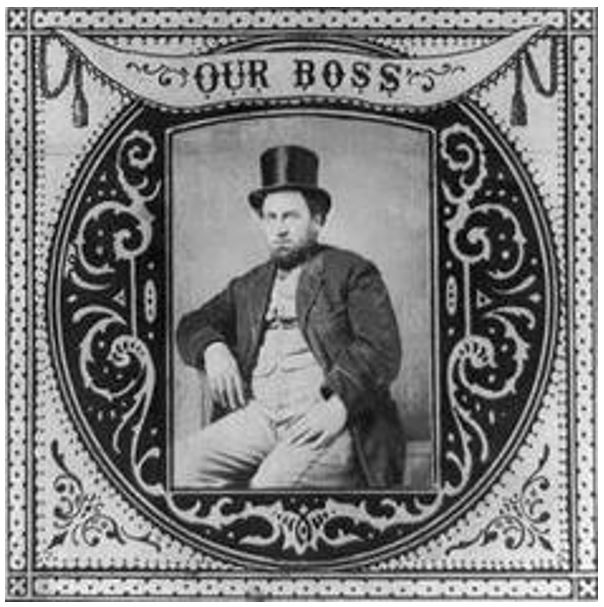Fri, 24 January 2014
My fascination with this subject was one of the reasons that drove me to write Return On Influence And, to some extent, the attitude may have been codified when Zappos recently announced that it was eliminating titles and organizational charts. This was too good of a topic to pass up for me and I think you'll enjoy the discussion Tom Webster and I have on this topic on the newest edition of our Marketing Companion podcast. But that's just the beginning. Tom and I cover a lot of ground in this edition. As you may know, a recent post I wrote called Content Shock went crazy. Suddenly, I felt like I had become the center of attention for a large portion of the marketing dialogue. When we recorded this episode of the podcast, the personal implications of all this attention and the clubbiness of the social web were weighing on my mind. This led into a discussion of "content curation" versus "content assembly." Is curation a legitimate way to stand out today? Isn't every move Google makes HURTING the idea of curating content as a strategy? Tom does a great job in this podcast providing some tips for skillful content curation. Are you ready for some podcasting fun? Well, wait no longer.
|
Fri, 10 January 2014
Over the past few weeks the interweb airwaves have been humming and buzzing with data pointing to the increasing costs of getting your content seen and distributed through an over-crowded web.
All of these trends support the idea of a "Content Shock" that is coming -- if it isn't here already -- for many businesses. Businesses who just pump out more content -- even "better" content -- are engaging in a strategy that is becoming increasingly difficult because the cost to succeed is going up, up, up. What are you going to do about it? That is really the dialogue that has to be happening next, right? And that is the conversation that begins here, in this new edition of the Marketing Companion podcast I created with Tom Webster. We start with a little fun, introducing a new idea called "Prickstarter" and then get into some pretty deep ideas about content and audience that includes:
Pretty amazing, right? Resources mentioned in this podcast Comment from Ken Rosen that served as an example of Content Shock Three phases of the web reference from Microsoft's Dean Hauchomovitch Shel Holtz post on consumer view of Content Shock Christopher Penn discussion on owned, earned and paid media Website of Dr. Robert Cialdini Website of Voices Heard Media Illustration courtesy BigStock.com This content was created as part of the IBM for Midsize Business program, which provides midsize businesses with the tools, expertise and solutions they need to become engines of a smarter planet. I’ve been compensated to contribute to this program, but the opinions expressed in this post are my own and don't necessarily represent IBM's positions, strategies or opinions. |
The Marketing Companion

Categories
Social Media Marketinggeneral
Archives
AprilMarch
February
January
December
November
October
September
August
July
June
May
April
March
February
January
December
November
October
September
August
July
June
May
April
March
February
January
December
November
October
September
August
July
June
May
April
March
February
January
December
November
October
September
August
July
June
May
April
March
February
January
December
November
October
September
August
July
June
May
April
March
February
January
December
November
October
September
August
July
June
May
April
March
February
January
December
November
October
September
August
July
June
May
April
March
February
January
December
November
October
September
August
July
June
May
April
March
February
January
December
November
October
September
August
July
June
May
April
March
February
January
December
November
October
September
August
July
June
May
April
March
February
January
December
November
October
September
August
July
June
| S | M | T | W | T | F | S |
|---|---|---|---|---|---|---|
| 1 | 2 | 3 | 4 | |||
| 5 | 6 | 7 | 8 | 9 | 10 | 11 |
| 12 | 13 | 14 | 15 | 16 | 17 | 18 |
| 19 | 20 | 21 | 22 | 23 | 24 | 25 |
| 26 | 27 | 28 | 29 | 30 | 31 | |
Syndication

 When I was in graduate school I took a class that examined the qualities of leadership. I have to make a confession ... the only reason I took it was because I thought it was going to be an easy blow-off class! I was completely wrong. This turned out to be one of the most interesting and inspiring classes of my career and it ignited a lifetime of study on the subject. It turned me into a leadership junky.
When I was in graduate school I took a class that examined the qualities of leadership. I have to make a confession ... the only reason I took it was because I thought it was going to be an easy blow-off class! I was completely wrong. This turned out to be one of the most interesting and inspiring classes of my career and it ignited a lifetime of study on the subject. It turned me into a leadership junky.
